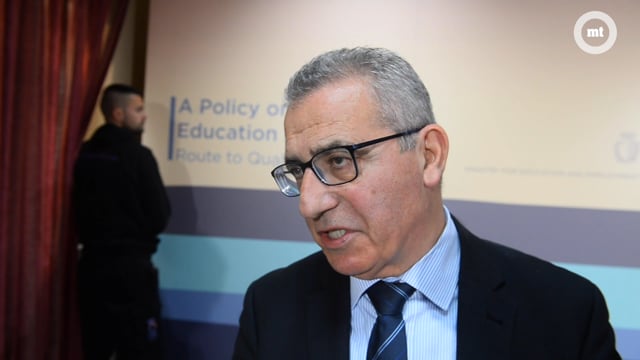[WATCH] Inclusion is not easy and will require sacrifice by entire community, education minister says
Speaking at the launch of national inclusion policy for the education sector, Evarist Bartolo insisted that communities should strive to learn from each other and not build fences


Inclusion within society is no easy feat and will require a sacrifice from all involved, Education Minister Evarist Bartolo said on Tuesday.
Bartolo was addressing the launch of a public consultation on an inclusion policy aimed for Maltese schools, where he said that a one-size-fits-all policy would in reality fit no one, since he said, there was no such thing as an “average student”.
Those types of students, he said, only exist in statistics and not in reality.
The policy is designed to provide a clear direction for schools to take in order to ensure more inclusion. It “celebrates the good work that has been going on in schools”, and builds on the efforts that have been made, the policy document states.
It aims to harmonize the practices used so far, to provide effective and efficient service to learns, educators, parents and the wider community. The policy has been adopted from the recommendations by the Council of the European Union and should cover all aspects of education.

The policy includes creating opportunities for students to learn about different religions, different sexuality’s, persons with disabilities, among others.
“Inclusion is difficult, and to a certain extent it’s not even natural, rather exclusion is. It’s something that’s going to take time and that will require sacrifice from the entire community, and that is something we need to realize. It’s a continuous effort which never stops,” Bartolo said.
The minister added that he understood that creating policies was the easy part. “Instead of building fences, we need to work together as a community to learn from each other to better understand each other, to change the ideologies that people have,” he said.
The key principles:
- School communities: students, teachers, and active participants in the community should reflect. In order to promote communal understanding.
- Respecting diversity: understanding that all learners have diverse needs, characteristics, learning preferences, diverse social and emotional needs.
- Letting schools decide: while all schools are responsible to make sure that inclusion is achieved. Schools are encouraged to to decide themselves how best to tackle the issue.
- Training educators: training related to inclusion coupled with a clear direction and goals of the SPD will enable educators to cater for diversity in inclusion.

.png)




.jpg)












.jpeg)



